- Some jobs come with more health risks than others.
- Exposure to carcinogenic toxins such as formaldehyde, arsenic, and carbon monoxide is common in some occupations.
- We rounded up 10 commonly held jobs that may be linked to a higher risk of cancer.
- Visit Business Insider’s homepage for more stories.
Many jobs can be hazardous to your health. Some occupations, such as coal mining and firefighting, come with well known risks of disease or bodily harm. Other jobs may seem safe, but can still pose a risk to your overall health if they expose you to hazardous materials.
However, by understanding the dangers and taking preventative measures to mitigate risk, workers can lower their chances of disease.
Here are 10 commonly held jobs that can be associated with a higher risk of cancer.
Pilots can be exposed to higher-than-average levels of UV radiation while flying.

According to an analysis published in the journal JAMA Dermatology, pilots can be exposed to higher-than-average levels of UV radiation on the job.
Exposure to UV radiation is known to increase one's risk of skin cancer. Sitting for an hour in the cockpit of a plane in flight can expose the skin to the same amount of UVA radiation as using a tanning bed for 20 minutes, that study found.
Lifeguards can also cancer-causing skin damage on the job.

The World Health Organization (WHO) has found that the sun's UV rays are the strongest between 10 a.m. and 4 p.m. During those hours, the organization recommends people limit sun exposure and liberally apply sunscreen of at least SPF 15.
The Los Angeles County Lifeguard Association, which represented 120 full-time and 600 part-time lifeguards at the time, implemented programs in the 1990s to screen for skin cancer among its employees following the death of one lifeguard due to melanoma, the Los Angeles Times reported. Los Angeles County Lifeguards hold an annual fundraiser to raise money and awareness for breast and skin cancer, which they say has had an impact on their personnel.
Any desk job that requires extended periods of sitting can be hazardous to your health.

If you're among the 86% of American workers who work at a desk all day, your job may have an adverse effect on your health. A 2009 study found that people who had increased sitting times had higher rates of cancer and overall mortality, even when they got some daily exercise.
The American Cancer Society has also found a link between long periods of inactivity and cancer. The group says that people who spend "prolonged leisure time sitting" - defined as more than 6 hours per day - have a 19% higher rate of death compared to people who sit an average of 3 hours per day. That number includes all causes of death, but it doesn't necessarily mean that sitting directly causes cancer or other diseases, since sick people are also likely to move around less.
Nail-salon workers can be exposed to cancer-causing chemicals while working.

Studies have shown that nail salons may host more cancer-causing chemicals than auto garages or oil refineries. A study published this year in the journal Environmental Pollution found that the carcinogenic chemical benzene can be present in many salons. The researchers predicted that the nail salon workers analyzed in their study would have an increased risk of cancer due to their exposure.
"This is a fairly small study, but if this is representative, this is very concerning. Leukemia isn't that common but if the risk is increased by this much, it is no longer a small number of cases," Brian Christman, a spokesperson for the American Lung Association, told Forbes.
The US Occupational Safety and Health Administration (OSHA) recommends that salons be well ventilated and have sufficient airflow. OSHA also suggests that nail-salon workers wear long-sleeved shirts, gloves, and masks to protect themselves from the chemicals in polishes and astringents.
Some farmers and other workers in agricultural jobs could develop certain cancers at higher rates.
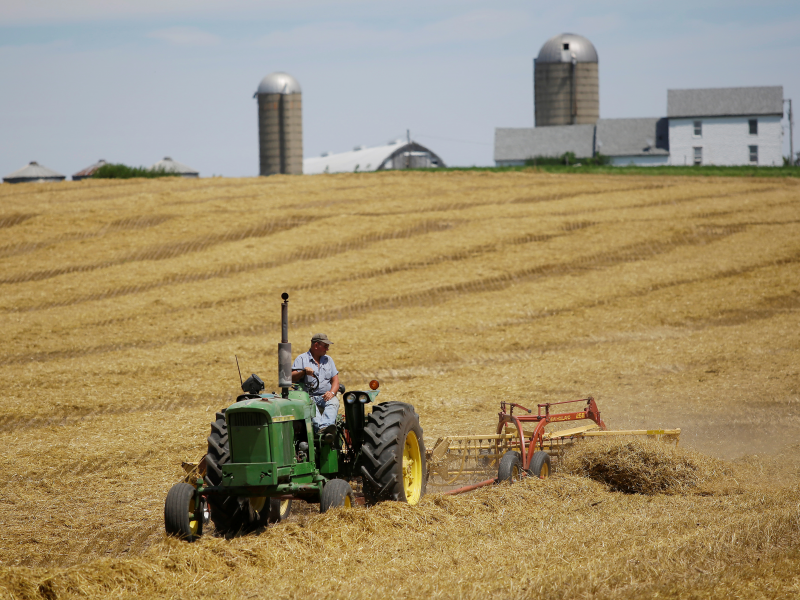
Farmers and their family members are diagnosed with certain cancers at higher-than-normal rates compared to people in other professions, and researchers believe this may be due to increased pesticide exposure. A 2011 study conducted in Iowa and North Carolina found that the rate of prostate cancer was higher among farmers than other residents of those states - in fact, farmers and those exposed to pesticides were 20% more likely to report having prostate cancer.
A 2013 study published in the American Journal of Epidemiology also found significant associations between aggressive prostate cancer and common insecticides.
The chemical glyphosate, which agricultural company Monsanto (now Bayer) uses in its Roundup herbicide, has also been shown to be associated with cancer risk when used without proper protection. Gardeners Alva and Alberta Pilliod, along with other Roundup users, sued the company alleging that the chemical played a role in their hon-Hodgkin's lymphoma (NHL). In 2019, a California jury ordered Monsanto to pay the couple $2 billion in damages, although a judge later cut this to $86.7 million, Reuters reported. Bayer has since asked for the verdict to be overturned.
Firefighters can often be exposed to smoke inhalation, which can have adverse health effects.
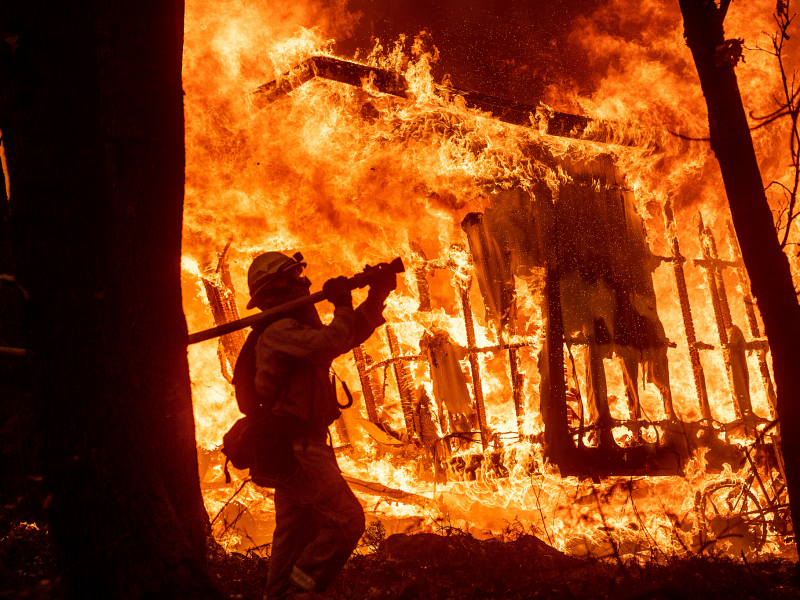
It's no surprise that firefighters work in dangerous and potentially lethal conditions. But firefighters can experience adverse health effects long after removing their suits because of the smoke they inhale.
The National Institute for Occupational Safety and Health (NIOSH) studied the risk of cancer among firefighters. They concluded that firefighters face a 9% increase in cancer diagnoses and a 14% increase in cancer-related deaths compared to the general US population.
Toxic substances and carcinogens in smoke include acrolein, carbon monoxide, and formaldehyde. That's why firefighters try to avoid breathing in smoke, always wear appropriate gear, and go through a decontamination process after leaving a site.
Painters can be exposed to fumes and chemicals that can be carcinogenic.
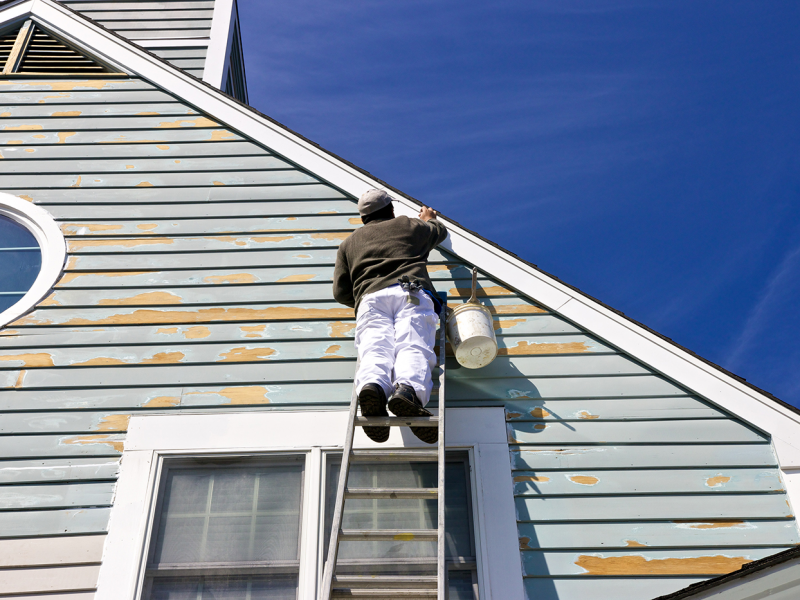
Painters can be exposed to fumes from paint, which may contain chemicals like benzene, which has been linked to a higher risk of leukemia and lymphoma. Arsenic is also found in some paints, and the International Agency for Research on Cancer classifies it as carcinogenic to humans.
Painters who don't wear protective masks and other gear could, therefore, be at risk of developing certain cancers. A study conducted in New Zealand found that painters may have a higher risk of multiple myeloma and tumors in the bladder or kidneys.
Rubber manufacturers have reported getting certain types of cancer at higher levels than other professions.
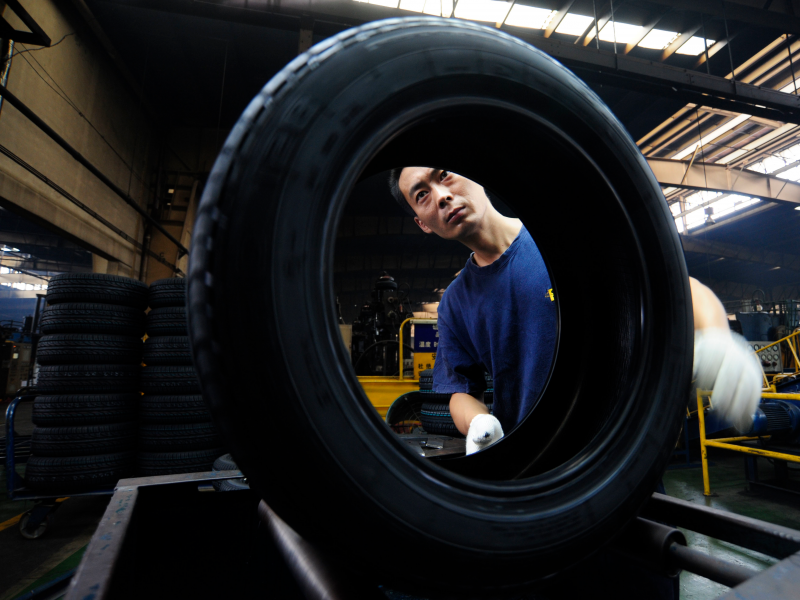
According to research published in a journal Occupational and Environmental Medicine, workers in the rubber industry were found to have a higher risk of bladder cancer, lung cancer, and leukemia than the general population.
Construction workers can be exposed to asbestos while on the job.

Asbestos may pose a serious threat to construction workers, and the harmful effects of exposure of this material may not show up for years.
Asbestos was once used in construction material including pipe insulation, floor tiles, and roofing shingles. Because of this, OSHA has deemed the risk of asbestos-related disease in construction workers to be of concern. Asbestos exposure can lead to a number of harmful conditions, OSHA reports, including lung cancer, mesothelioma, and gastrointestinal cancer.
Morticians and undertakers often have to deal with potentially cancer-causing chemicals like formaldehyde.
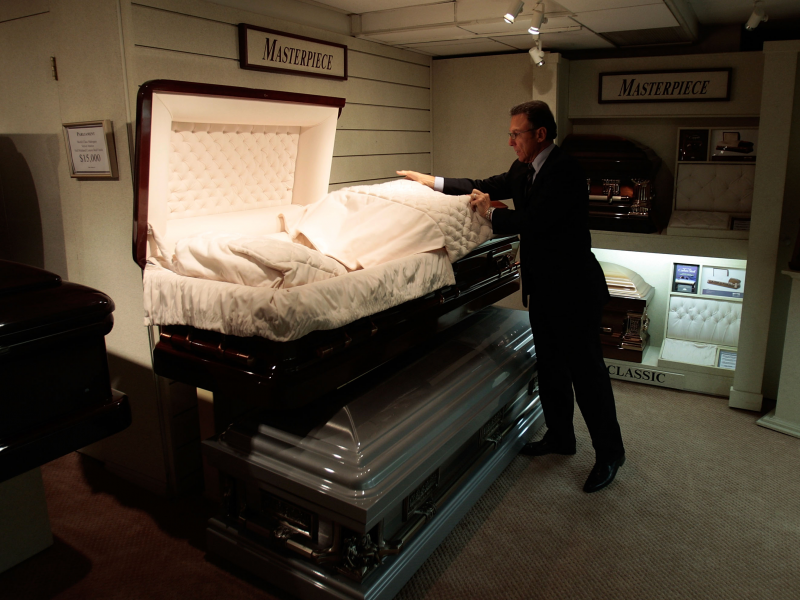
Preservatives - most notably formaldehyde - are part of the job when it comes to the work of embalmers and morticians.
"Formaldehyde is the perfect product for fixation and short-term preservation," Debbie Dodge, president of the Dodge Company, which markets embalming fluids to funeral homes, told The New York Times. "Formaldehyde will firm up the body tissue more than any of the non-formaldehyde products out there."
In order to combat the potential consequences of breathing formaldehyde fumes - including higher cancer risk - morticians and undertakers working in funeral homes are required by OSHA to monitor exposure to formaldehyde.
- Read more:
- The 47 jobs that are most damaging to your health
- There's a chemical in coffee that may cause cancer, but researchers have found a way to reduce your risk
- Processed foods make us fatter, lead to cancer, and are linked with early death. But what exactly is a processed food?
- Scientists have discovered a new link between sugar and tumor growth

